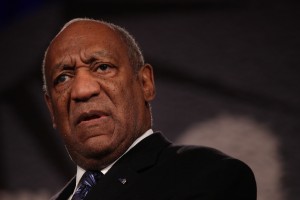
Bill Cosby (Photo by Spencer Platt/Getty)
The Bill Cosby case ended, predictably, in a mistrial. The only real question remaining is whether the prosecution will be able to do any better the next time around, if indeed there is one.
With testimony about the event from only one witness, Andrea Constand, and no forensic corroboration, that’s already a tough case for the prosecution. Also weighing on their chances is the fact that at trial Ms. Constand contradicted the version she gave during earlier police reports, that she repeatedly telephoned Mr. Cosby after the alleged crime, and that she even went to see him perform with her parents. All of this casts doubt on whether her word alone will ever be enough to convince any jury beyond a reasonable doubt.

[E-BOOK] 5 AI Productivity Hacks To Save Time And Streamline Your Law Firm
Discover five practical ways to harness AI and eliminate busywork—so you can focus more on your clients and less on repetitive tasks.
But things could change in the next trial. For example, prosecutors might persuade Judge O’Neil to permit more than just Kelly Johnson, the woman who made similar complaints against Cosby, to testify. If the prosecutor can put on a greater number of similarly situated women, the game shifts.
Problem is — the law protects, to some extent, people who have been accused of similar acts (and even found guilty of them), and for a good reason. A person should not be convicted on a theory that he has a “propensity” to commit a crime. That would be unfair. Let’s say at 22 you’re charged with auto-theft (joy riding). Later, at age 35, you’re in a bad divorce and your wife accuses you of stealing her car. If a jury knew you’d done it before, the chances of them presuming you innocent are greatly diminished.
Bill Cosby, remember, had never been guilty of any sex assaults in the past. True, there have been plenty of allegations, but either because of lack of evidence or the amount of time passed since the alleged events, no charges had ever been brought against him until this case.
How does a judge make a decision about how many floating allegations against a defendant should come in? They do a balancing test. What’s fair for a jury to know is weighed against what is too prejudicial to be probative. One prior allegation is certainly fair. Two, maybe. Ten or more would seem to flip the scale. The jury might start off disregarding the presumption of innocence and instead assuming — this is the kind of guy who does this.

Paying for Law School in 2025: A Straight-Talk Playbook
Juno has consistently secured the best private loan deals for students at the Top MBA programs since 2018—now they’re bringing that same offer to law students, at no cost. Students can check their personalized offers at juno.us/atl This article is for general information only and is not personal financial advice.
If the case is retried, it’s possible it might go better for Cosby. His lawyers now have a full idea of how the prosecution witnesses present at trial. They might pick a different make-up of the jury (once they finally speak to the jurors in the first case.) And the defense witness excluded by the judge — the woman who worked with Ms. Constand and claimed she was told by her that the claim was made up — might be able to testify.
Important to know is the how the jurors split. Was it 1 to 11 for conviction, or 6 to 6, or 1 to 11 for acquittal? While it’s never certain the next jury will react in the same manner, knowing the split will inform both the prosecution and defense how better to play their cards next time.
If the split was 1 to 11 for acquittal (11 people voting to acquit), maybe the prosecution will decide not to retry it — not to put Ms. Constand through what was certainly an emotionally grueling process again. It could be enough to know there’s quite a few civil lawsuits out there likely to snag Mr. Cosby more easily than the criminal case. The standard of proof is lower. Remember what happened to O.J.?
Toni Messina has tried over 100 cases and has been practicing criminal law and immigration since 1990. You can follow her on Twitter: @tonitamess.